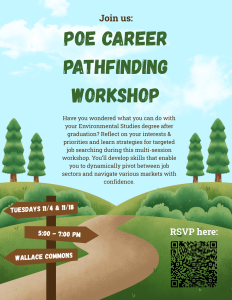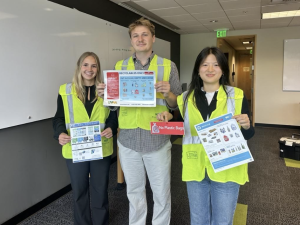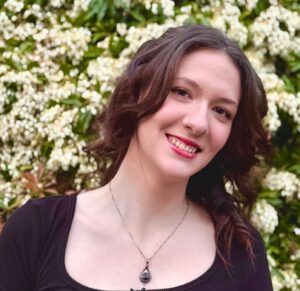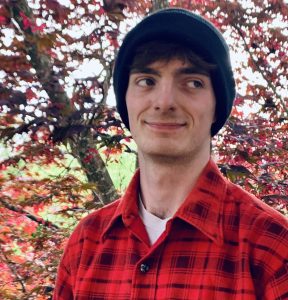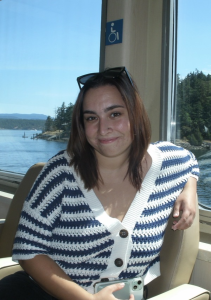 Victoria Bigga, Leo Reitan Endowed Scholarship
Victoria Bigga, Leo Reitan Endowed Scholarship
Victoria is an Environmental Studies and Law, Societies, & Justice double major, graduating in the Spring 2027. As well as being a student, she is a project manager for the Foster School’s Net Impact Consultancy where she works with outside businesses on sustainability and environmental awareness through research and marketing projects. This past summer, she worked with the New Jersey Fund for Public Interest as a Field Manager on a clean water campaign with Environment New Jersey and a right to repair campaign with the NJ Public Interest Research Group. With her LSJ major, Victoria is very passionate about environmental policy and litigation and aspires to attend law school to work towards natural preservation and social justice issues perpetrated by climate change. She is also very interested in agricultural systems and food justice, and hopes to work towards creating more equitable spaces in communities and protecting local ecologies. In her free time, she is also an avid lover of the outdoors and loves travelling, hiking, kayaking, and gardening.
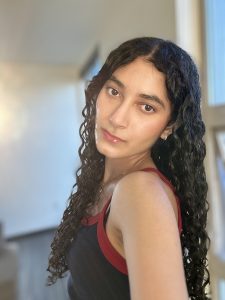 Sarah Desai, Nancy Wilcox Endowed Scholarship & Vontver Environment and Human Health Endowed Scholarship
Sarah Desai, Nancy Wilcox Endowed Scholarship & Vontver Environment and Human Health Endowed Scholarship
Sarah is an Environmental Studies and Anthropology double major with a minor in ESRM; after graduating in 2026, she intends to attend law school. She is currently a Program Support Intern for City of Seattle’s Human Services Department. She is also on the Student Advisory Council (SAC) for the College of the Environment, helping to advise Deans on student-related issues. She recently completed her Anthropology honors thesis, studying the environmental and human health effects of radiation pollution from the Hanford nuclear site through an environmental justice and public policy lens. And this past summer, Sarah worked as a Population Health Applied Research Fellow under UW’s Center for Studies in Demography and Ecology to assess the accessibility of neighborhood parks for various King County stakeholders. In her personal time, she enjoys reading, cooking, and running.
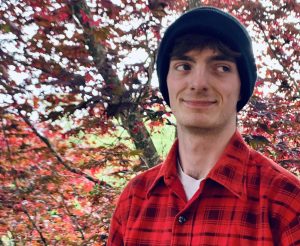 Oliver Girouard, Michael and Rebecca McGoodwin Endowed Scholarship in Environmental Conservation, Atmospheric, and Earth Sciences
Oliver Girouard, Michael and Rebecca McGoodwin Endowed Scholarship in Environmental Conservation, Atmospheric, and Earth Sciences
Oliver, who has lived in Seattle his entire life, will be receiving his degree in Environmental Studies from the University of Washington in spring of 2026. Drawing from his experiences as an environmental camp counselor and Washington Conservation Corps crewmember, Oliver is passionate about sharing the joy of exploring the Pacific Northwest and plans to become an environmental educator. Oliver believes that the youth of today could greatly benefit from more time in nature, especially given our rapidly expanding digital world. He is also passionate about native plant production and has been serving as a student assistant for the SER Native Plant Nursery on campus. This past summer, he completed an internship at the university’s Pack Forest, where he contributed to data collection for two large-scale forestry studies and looks forward to applying the methods he learned to his capstone project.. He is committed to learning about climate adaptation strategies and finding ways to educate youth about environmental issues that inspire action rather than despair.
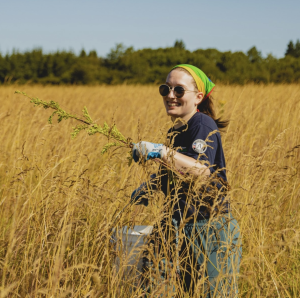 Ang Rosengreen, College of the Environment Scholarship
Ang Rosengreen, College of the Environment Scholarship
Ang Rosengreen is a fourth-year Environmental Studies major. Growing up in the Puget Sound area, they developed a curiosity and appreciation for the natural environment. This appreciation grew into a passion and commitment to environmental justice and ecological conservation. Pursuing these passions, Ang served in the Washington Conservation Corps for 2 years, gaining hands-on experience and skills in ecological restoration, trail building, and marine research. Envisioning a career in the public sector, they plan on pursuing a graduate degree with a focus on marine and environmental affairs. Drawing on their field background and interdisciplinary education, Ang aspires to work in a role that allows them to inform policy from an environmental justice perspective. With this work, they hop to contribute to policy that strengthens ecosystems and communities in the face of climate change.
